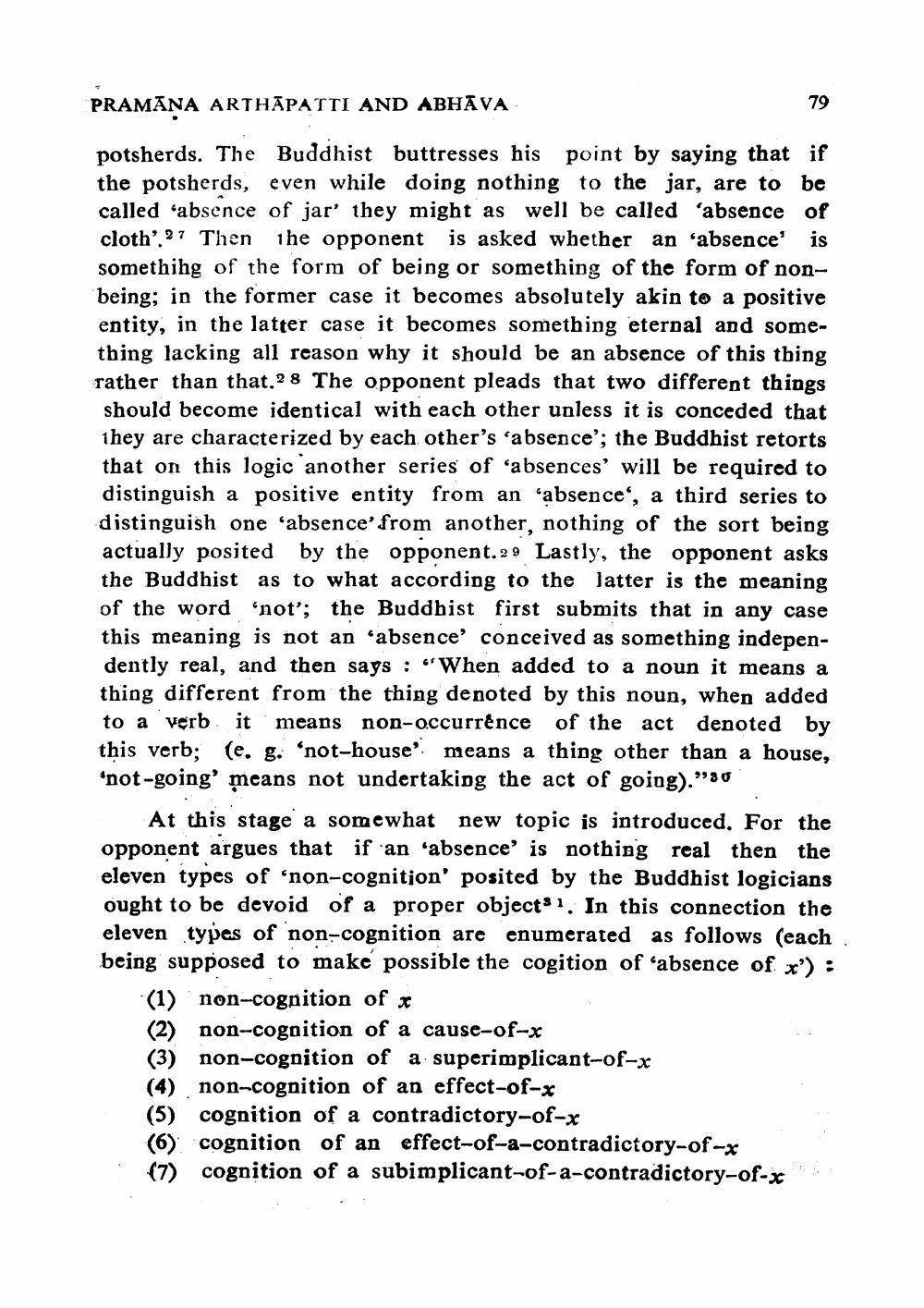________________
PRAMĀNA ARTHĀPATTI AND ABHAVA
potsherds. The Buddhist buttresses his point by saying that if the potsherds, even while doing nothing to the jar, are to be called 'absence of jar' they might as well be called 'absence of cloth'.27 Then the opponent is asked whether an 'absence is somethihg of the form of being or something of the form of nonbeing; in the former case it becomes absolutely akin to a positive entity, in the latter case it becomes something eternal and something lacking all reason why it should be an absence of this thing rather than that.2 8 The opponent pleads that two different things should become identical with each other unless it is conceded that they are characterized by each other's 'absence'; the Buddhist retorts that on this logic another series of 'absences' will be required to distinguish a positive entity from an 'absence“, a third series to distinguish one 'absence from another, nothing of the sort being actually posited by the opponent.29 Lastly, the opponent asks the Buddhist as to what according to the latter is the meaning of the word 'not'; the Buddhist first submits that in any case this meaning is not an 'absence' conceived as something independently real, and then says: “When added to a noun it means a thing different from the thing denoted by this noun, when added to a verb it means non-occurrence of the act denoted by this verb; (e. g. 'not-house' means a thing other than a house, 'not-going' means not undertaking the act of going)."30
At this stage a somewhat new topic is introduced. For the opponent argues that if an 'absence' is nothing real then the eleven types of ‘non-cognition' posited by the Buddhist logicians ought to be devoid of a proper objects 1. In this connection the eleven types of non-cognition are enumerated as follows (each being supposed to make possible the cogition of 'absence of x') :
(1) non-cognition of x (2) non-cogoition of a cause-of-x
non-cognition of a superimplicant-of-x (4) non-cognition of an effect-of-x
cognition of a contradictory-of-x cognition of an effect-of-a-contradictory-of-x cognition of a subimplicant-of-a-contradictory-of-x .




